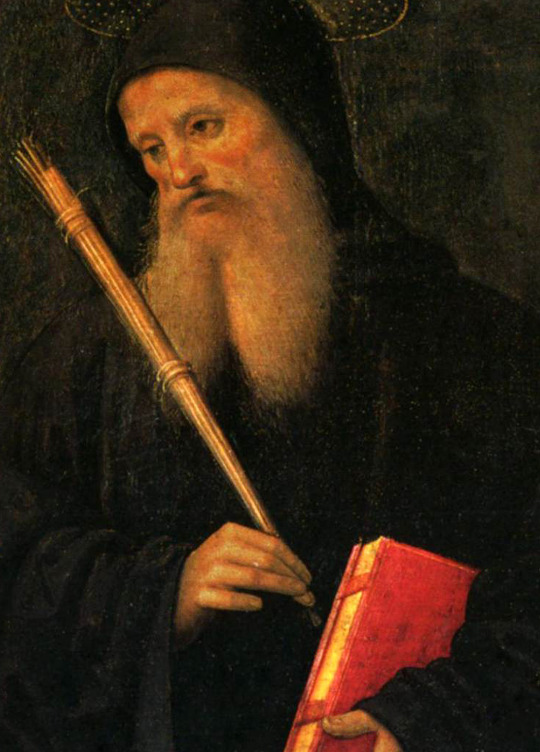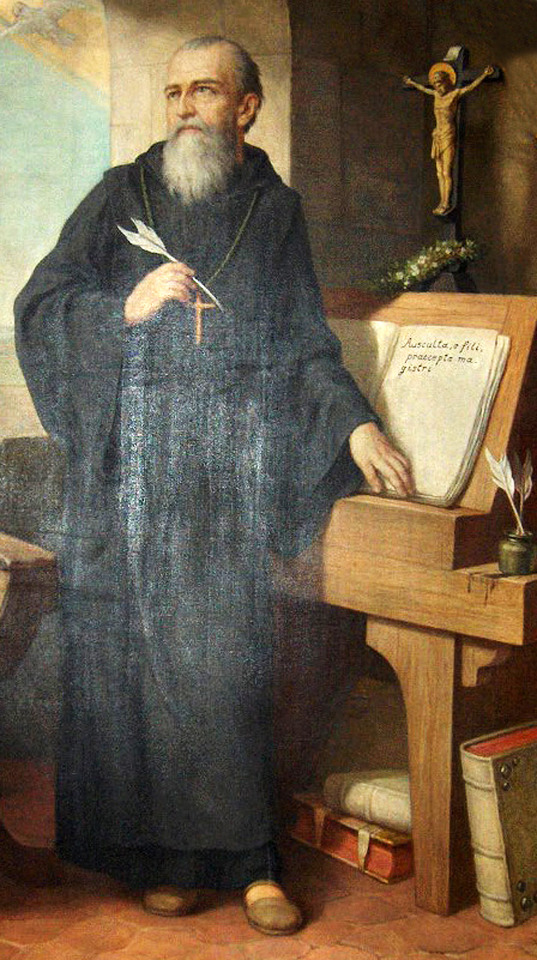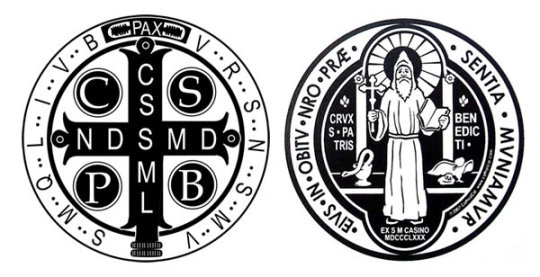#St. Benedict
Text
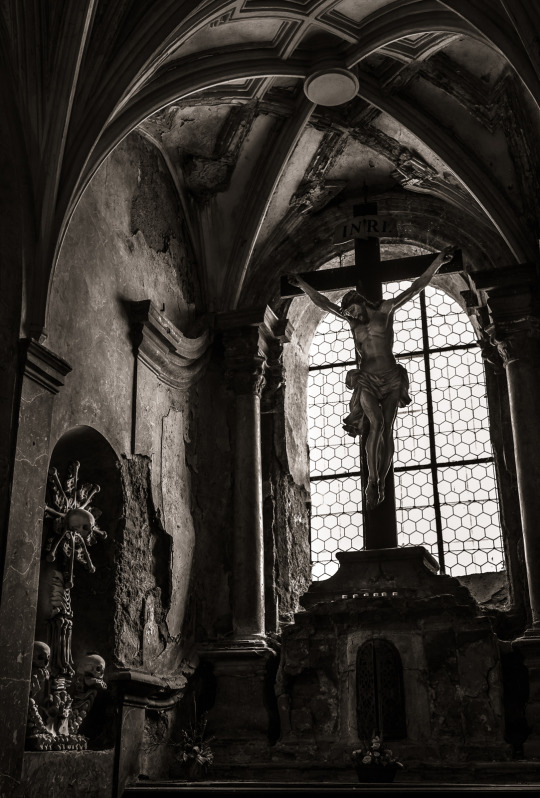
Source of picture: https://pierangelis.tumblr.com
"Lord my God, I called to you for help, and you healed me." Psalm 30:2
#Lord#my God#I called to you#quotes#St. Benedict#Psalm 30:2#God#Jesus#Christ#Jesus Christ#Father#Son#Holy Spirit#Holy Trinity#christian religion#faith#hope#love#stress reliever
84 notes
·
View notes
Text
What are you giving up for Lent?

(for someone who’s focused on the wrong thing)
What are you giving up for Lent?
It’s the classic question as we start Lent.
No matter how we answer it, if our answer feels negative? That means we’ve probably gotten it wrong.
Because when it feels that way, either we’re giving up something that means little to us. We’re following the form of Lent but we’ve lost the substance. We’re just checking another box. And that’s it.
Or we’ve gone too far into the substance - and lost the spirit. Turning it into something that feels more like an off-target version of St. Benedict’s famous advice on Lent – “Renounce yourself in order to follow Christ.”
With the renunciation – the giving-up-for-Lent part – being the focus.
If that’s our understanding of St. Benedict – if we’re giving up something for the sake of giving up something – then we’ve missed the point he’s making.
The renunciations of Lent are never their own end. They are merely a means. A means to something much greater – dumping the things that have come between us and God.
While they may be the spiritual equivalent of filling potholes on our road to God, the renunciations of Lent are not optional.
Not because God’s going to punish you if you don’t give something up for Lent.
But because the right renunciations – dumping the things that have come between you and God – prepares you to receive the good that God wants to do in your life this Lent.
Instead of asking what you’re giving up for Lent, maybe a better question is why?
Today’s Readings
#Lent#Giving Up for Lent#Dumping#Potholes#Getting between you and God#St. Benedict#God#Jesus#Catholic#Christian#Church#Moments Before Mass
16 notes
·
View notes
Text
“We descend by self-exaltation and ascend by humility.”
- St. Benedict of Nursia
99 notes
·
View notes
Text

#jesus#catholic#my remnant army#jesus christ#virgin mary#faithoverfear#saints#jesusisgod#endtimes#artwork#Jesus is coming#rosary#Mother Mary#pray for us#St. Benedict
19 notes
·
View notes
Text
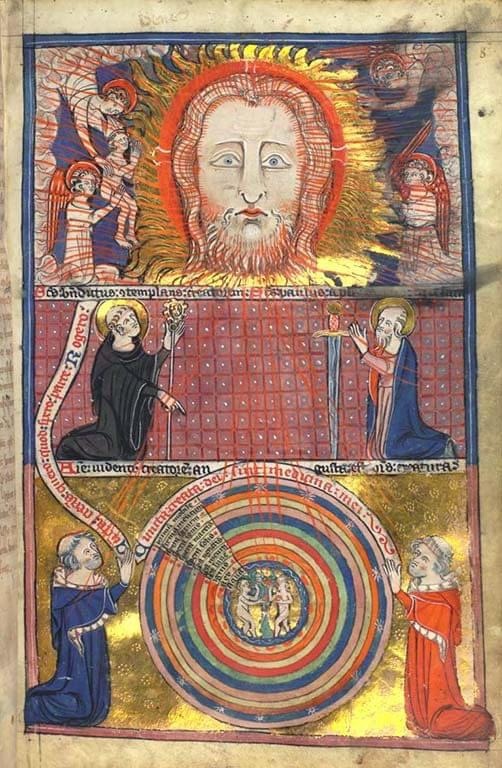
Helios becomes Apollo becomes God. The Visions of God formed by St Benedict and St Paul, from: Devotional and Philosophical Writings, folio 85. Manuscript: London c. 1325-1335. University Library, Glasgow, Scotland, MS Hunter 231 (U.3.4) [Robert Scott Horton]
* * * *
“There is the inner life, which is the world of final reality, the world of memory, emotion, imagination, intelligence, and natural common sense, and which goes on all the time, consciously or unconsciously like the heartbeat. There is also the thinking process by which we break into the inner life and capture answers and evidence to support the answers out of it. That process of raid, or persuasion or ambush, or dogged hunting, or surrender, is the kind of thinking we have to learn, and if we do not somehow learn it, then our minds lie in us like the fish in the pond of man who cannot fish.”
- Ted Hughes
[via “Alive On All Channels” Archive]
#Helios#the gods#God#St. Benedict#St. Paul#Robert Scott Horton#Ted Hughes#Alive On All Channels#quotes#the inner#words and writing#my favorites
9 notes
·
View notes
Video
Yum by Nadine
Via Flickr:
Soom Neo-angel Region Humpty-Dumpty
#doll#bjd#resin#anthro#egg#Soom#Neo-angel Region#Humpty-Dumpty#3383a-benedict#St. Benedict#Eggs Benedict#flickr
18 notes
·
View notes
Text
July 11 is the Memorial of ST. BENEDICT . . .
“O Glorious St. Benedict, sublime model of all virtues, pure vessel of God’s grace! Behold me, humbly kneeling at thy feet. I implore thy loving heart to pray for me before the throne of God. To thee I have recourse in all the dangers which daily surround me. Shield me against my enemies, inspire me to imitate thee in all things. May thy blessings be with me always, so that I may shun whatever God forbids and avoid the occasions of sin.”
“Graciously obtain for me from God those favors and graces of which I stand so much in need, in the trials, miseries and afflictions of life. Thy heart was always so full of love, compassion, and mercy towards those who were afflicted or troubled in any way. Thou didst never dismiss without consolation and assistance anyone who had recourse to thee. I therefore invoke thy powerful intercession in the confident hope that thou will hear my prayers and obtain for me the special grace and favor I so earnestly implore ...... (MENTION YOUR REQUEST) ....... , if it be for the greater glory of God and the welfare of my soul.”
“Help me, O great St. Benedict, to live and die as a faithful child of God, to be ever submissive to His holy will, and to attain the eternal happiness of heaven. Amen.”

2 notes
·
View notes
Text
July 11 is the feast day of St. Benedict, abbot and main patron saint of Europe

Source of picture: https://attempts-at-greatness-blog.tumblr.com
"The lions may grow weak and hungry, but those who seek the Lord lack no good thing." Psalm 34:10
#St. Benedict#main patron saint of Europe#saints#Bible#bible quotes#Psalm 34:10#The lions may grow weak and hungry#abbot#God#Jesus#Christ#Jesus Christ#Father#Son#Holy Spirit#Holy Trinity#christian religion#faith#hope#love#stress reliever
14 notes
·
View notes
Text
SAINT OF THE DAY (February 10)

On February 10, the Catholic Church remembers St. Scholastica, a nun who was the twin sister of St. Benedict of Nursia, the "Father of Monasticism" in Western Europe.
The siblings were born around 480 to a Roman noble family in Nursia, Italy.
Scholastica seems to have devoted herself to God from her earliest youth, as the account of Benedict's life by Pope Gregory the Great mentions that his sister was "dedicated from her infancy to Our Lord."
The twins' mother died at their birth. When Benedict was old enough, he left home to study in Rome, leaving Scholastica with her father to tend the Nursian estate.
In time, Benedict left his studies to live first as a hermit and then as the head of a community of monks in Italy.
When Scholastica learned of her brother's total dedication to the Lord, she was determined to follow his example.
It is not certain that she became a nun immediately, but it is generally supposed that she lived for some time in a community of pious virgins.
Some biographers believe she eventually founded a monastery of nuns there.
The brother and sister communities were about five miles apart. St. Benedict seems to have directed his sister and her nuns, most likely in the practice of the same rule by which his own monks lived.
Unlike her brother, St. Scholastica was never the subject of a formal biography.
As such, little is known of her life apart from her commitment to religious life, which paralleled that of her brother.
Pope Gregory wrote that Scholastica used to come once a year to visit Benedict, at a house situated halfway between the two communities.
St. Benedict's biographer recounted a story, which was frequently told about the last such visit between the siblings.
They passed the time as usual in prayer and pious conversation, after which, Scholastica begged her brother to remain for the night, but he refused.
She then joined her hands together, laid them on the table, and bowed her head upon them in supplication to God.
When she lifted her head from the table, immediately there arose such a storm that neither Benedict nor his fellow monks could leave.
"Seeing that he could not return to his abbey because of such thunder and lightning and great abundance of rain," Pope Gregory wrote, "the man of God became sad and began to complain to his sister, saying, 'God forgive you, what have you done?'"
"'I wanted you to stay, and you wouldn't listen,' she answered. 'I have asked our good Lord, and He graciously granted my request, so if you can still depart, in God's name, return to your monastery, and leave me here alone.'"
St. Benedict had no choice but to stay and speak to his sister all night long about spiritual matters -- including the kingdom of heaven for which she would soon depart.
Three days later in the year 543, in a vision, Benedict saw the soul of his sister, departed from her body, and in the likeness of a dove, ascend into heaven.
He rejoiced with hymns and praise, giving thanks to God. His monks brought her body to his monastery and buried it in the grave that he had provided for himself.
St. Benedict followed her soon after and was buried in the same grave with his sister.
Scholastica is the patron saint of Benedictine nuns, education, and convulsive children. She is also invoked against storms and rain.
4 notes
·
View notes
Text
What are you giving up?

(for someone who is focusing on the wrong thing)
What are you giving up for Lent?
It’s the classic question as we start Lent.
No matter how we answer it, if our answer feels negative? That feeling means we’ve probably gotten it wrong.
Because we’re giving up something that means little to us. Turning it into form without substance. If we’re honest, we know exactly what we’re doing with this one.
Or because we’ve gone too far into the substance and lost the spirit. Turning it into something that feels more like an off-target version of St. Benedict’s famous advice on Lent – “Renounce yourself in order to follow Christ.”
With the renunciation, the giving up being the focus.
If that’s our understanding of St. Benedict – if we’re giving up something for the sake of giving up something – then we’ve missed the point he’s making.
The renunciations of Lent are never their own end. They are merely a means. A means of dumping the obstacles that have come between us and God.
While they may be the spiritual equivalent of filling potholes on our road to God, the renunciations of Lent are not optional.
Because the right renunciations, dumping the things that have come between you and God, prepares you for the good that God wants to do in your life this Lent.
Instead of asking what you’re giving up for Lent, maybe a better question is why?
Today’s Readings
#Lent#What are you giving up?#God#Jesus#Catholic#Christian#Church#Dumping#Renounce#St. Benedict#Why#Moments Before Mass
10 notes
·
View notes
Text
“Renounce yourself in order to follow Christ; discipline your body; do not pamper yourself, but love fasting.”
- St. Benedict
8 notes
·
View notes
Text

𝘞𝘦𝘢𝘳 𝘵𝘩𝘦 𝘚𝘵. 𝘉𝘦𝘯𝘦𝘥𝘪𝘤𝘵 𝘮𝘦𝘥𝘢𝘭.
#jesus#catholic#my remnant army#jesus christ#virgin mary#faithoverfear#saints#jesusisgod#endtimes#artwork#Jesus is coming#st. benedict#pray for us#St. Benedict medal
12 notes
·
View notes
Text


Here is the LORD’s rebuke against someone…


Because this person will humble themselves in front of the LORD and others, God will help and rescue him/her.
0 notes
Text
Benedict, St. (480 - 547)
St. Benedict, also known as Benedict of Nursia, is a prominent figure in Christian history whose life and teachings have had a profound impact on monasticism and spirituality. Born in the 5th century, St. Benedict laid the foundation for the Benedictine Order and authored the renowned Rule of St. Benedict, a guidebook for monastic life that has shaped countless religious communities throughout…

View On WordPress
0 notes
